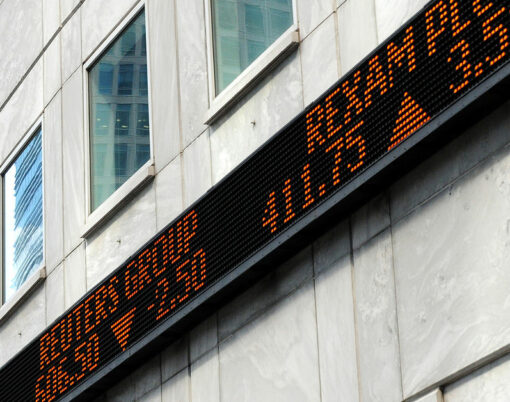Words by Sharon Bonfield, marketing proposition manager at St James’s Place Wealth Management
Many of us are making changes in our daily lives to reduce our impact on the climate. Research has also shown that investing responsibly can have 27 times more impact on your personal carbon footprint than flying less, taking shorter showers, eating less red meat and taking the train instead of the car combined1.
But the good news doesn’t end there. Investing responsibly needn’t come at the cost of financial returns. Quite the opposite, in fact. It has the potential to increase the long-term resilience of your investments, boost growth in your portfolio and reduce the effect of market swings.
The evidence that responsible investing (RI) can deliver sustainable financial returns is mounting. This research will only help us to improve our understanding around why RI – also known as environmental, social and governance (ESG) investing – has the potential to deliver positive returns over time.
One research study looked into the relationship between ESG and financial performance. The New York University Stern School of Business recently analysed more than 1,000 research papers between 2015 and 2020 and found a positive relationship for 58% of the studies. Only 8% showed a negative link, with mixed or neutral results for the others1.
NYU Stern also said this positive effect is even more evident over longer periods. This is reasonable, given that RI encourages sustainability in the way companies operate. For example, as firms move towards green energy and electric vehicles, they are proofing themselves against the negative effect of future oil shortages on their profits and share prices.

ESG portfolios have also been shown to hold value for investors during prominent market downturns, such as the 2008 financial crisis and the ongoing Covid-19 pandemic. During these turbulent market events, ESG portfolios fell less sharply compared to non-ESG portfolios included in the study, said NYU Stern.
Analysis by Morningstar found a similar link in its analysis during February 2020. ESG funds outperformed non-ESG funds in three out of the four investment categories it analysed – global, Europe and large companies. Emerging markets was the only category that didn’t show such an effect2.
Morningstar explained that this is because ESG investing provides a natural bias against high-risk firms and towards those with robust earnings.
Yet more evidence is provided by fund manager BlackRock when it identified that 94% of sustainable indexes (groups of companies’ share prices) outperformed their benchmarks during the Covid-19-related crash in the first quarter of 2020.
Strong employee satisfaction, customer relations, firm culture and board effectiveness were all sustainable characteristics that BlackRock attributed this as they are crucial traits for effectively handling a crisis3.
The NYU Stern study linked ESG to outperformance because sustainability initiatives at companies tend to improve risk management, innovation and efficiency.

ESG integration or screening?
NYU Stern found the ‘ESG integration’ investment strategy performs better than negative screening. Integration involves engaging with companies to improve their ESG practices rather than simply taking them out of portfolios (screening).
Engagement works because shareholders can exert considerable pressure on companies, and this method ensures their voices are heard.
Looking after limited raw materials, supply chains, local communities and labour rights are all good business practice. This is why RI has the potential to add to performance. By rejecting RI, you are not properly accounting for the risks and opportunities in our changing economy.
What is ESG investing worth?
To understand what responsible investing could be worth to you, it’s worth taking a look at the returns of the top third of companies with the strongest ESG ratings – global share index provider MSCI found that, in the seven years to 2020, these companies outperformed the bottom third by 2.56% a year4. That’s a significant sum. There is potentially also longer-term cumulative returns to consider too. Some experts now believe the stronger the ESG processes in your fund or portfolio, the better the potential for returns will be, although more studies are needed to support this point of view.

Will responsible investing outperformance last?
Flows into ESG funds have pushed prices up this year, potentially making future returns harder to find – and this understandably concerns some investors. But the long-term nature of sustainable practice means there is huge potential for plenty more returns from ESG investments in the coming years.
Investors’ interest in ESG investing shows no sign of slowing and, in effect, it’s creating a demand that will keep supporting prices and long-term returns for decades to come.
Our world is changing faster than anyone predicted. St. James’s Place Wealth Management believes that responsible investing has a huge role to play in shaping a better world and building a sustainable future.
Past performance is not indicative of future performance. The value of an investment with St. James’s Place will be directly linked to the performance of the funds you select and the value can therefore go down as well as up. You may get back less than you invested.
Sources
1 ESG and financial performance, New York University Stern, February 2021
2 How ESG ETFs have performed in the sell-off, Morningstar, April 2020
3 Sustainable investing: resilience amid uncertainty, BlackRock, May 2020
4 ESG investment finds its footing, MSCI, September 2021






















